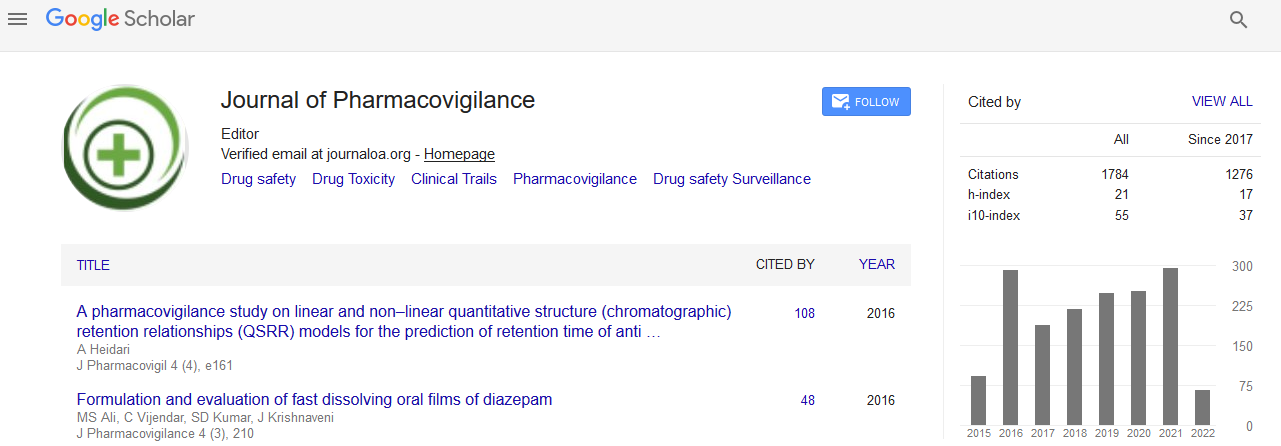Indexed In
- Open J Gate
- JournalTOCs
- The Global Impact Factor (GIF)
- RefSeek
- Hamdard University
- EBSCO A-Z
- OCLC- WorldCat
- Publons
- Euro Pub
- Google Scholar
Useful Links
Share This Page
Journal Flyer

Open Access Journals
- Agri and Aquaculture
- Biochemistry
- Bioinformatics & Systems Biology
- Business & Management
- Chemistry
- Clinical Sciences
- Engineering
- Food & Nutrition
- General Science
- Genetics & Molecular Biology
- Immunology & Microbiology
- Medical Sciences
- Neuroscience & Psychology
- Nursing & Health Care
- Pharmaceutical Sciences
Abstract
An Idea of Using Microneedles for the Targeted Drug Delivery to Overcome the Blood Brain Barrier for the Treatment of Brain Diseases
Lokesh Agrawal, Sunil Kumar Vimal, Min-Hua Chen and Takashi Shiga
Drug delivery and vaccination have become the most challenging issues recently in the patients who suffer from severe form of central nervous system diseases along with mild or severe bleeding disorders. In conventional drug delivery system, drug delivery through blood brain barrier remains a big challenge. Additionally, administration of such drugs by syringe injection has many limitations such as pain at the site of injection, infection, hemorrhage, anxiety as well as high cost and incompetency towards patients. Therefore, the proposed hypothesis focusses on the fabrication and development of solid, water soluble and biodegradable microneedles which aims to overcome the disadvantages of conventional drug delivery system. These microneedles loaded with calcium phosphate nanoparticles easily combine with mononuclear phagocytic cells (macrophages/monocytes) which serve as nanocarriers to deliver the drug at the site of interest for treating the inflammatory central nervous system diseases. The present idea expresses that microneedles can play a significant role to inject the 45calcium phosphate nanoparticles (radioisotope labelled) sub-dermally where they are engulfed and processed by macrophages. These nanoparticles loaded macrophages from the peripheral circulation follow the chemokine gradient secreted from the brain parenchyma to eventually enter inside the brain parenchyma and reach the site of ailment. Moreover, they can later secrete these particles and engage themselves in mundane immune replication. In summary, this work explores the potential of microneedles combined with macrophages as a carrier for targeted drug delivery to the diseased area of the brain.


